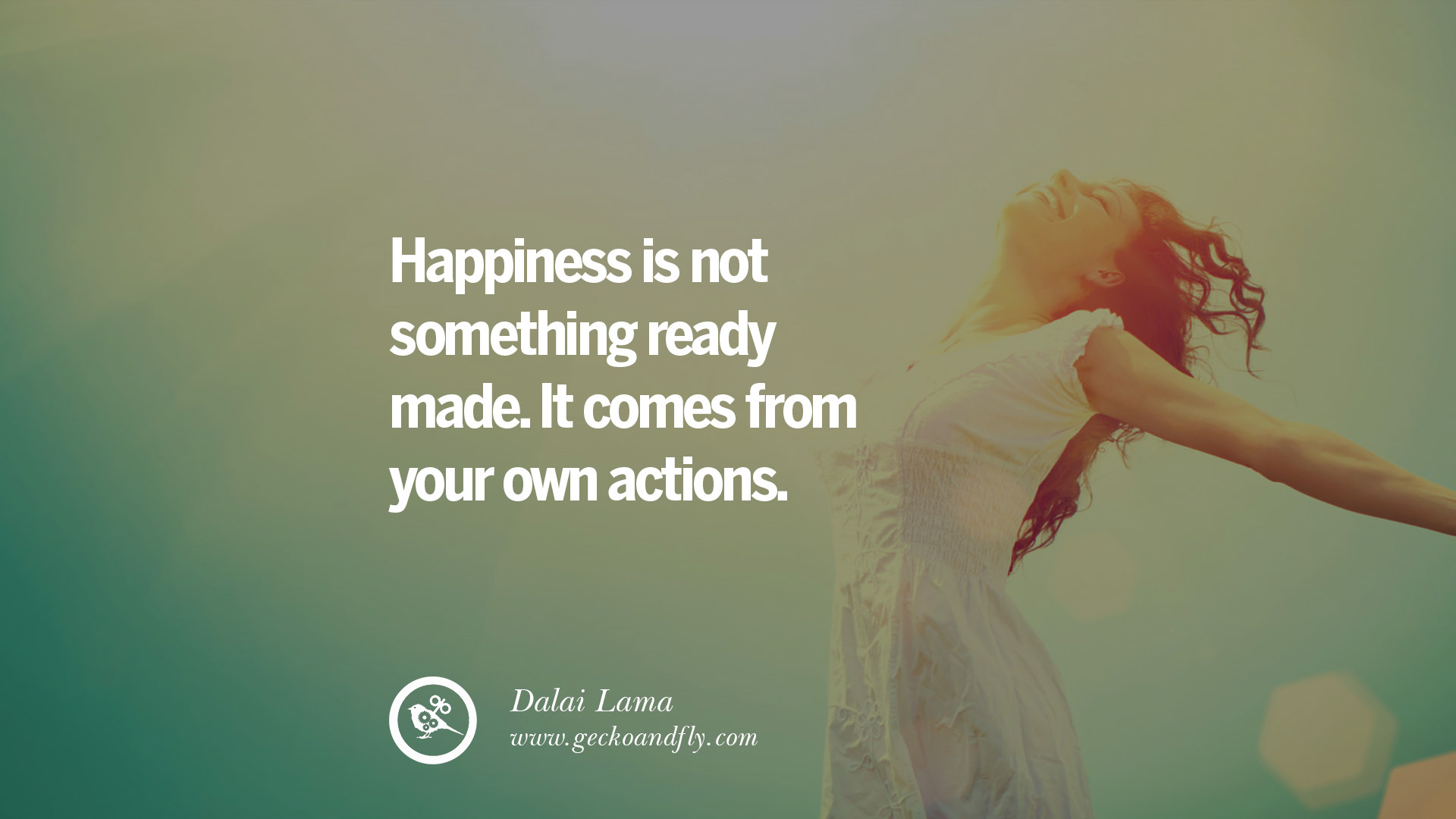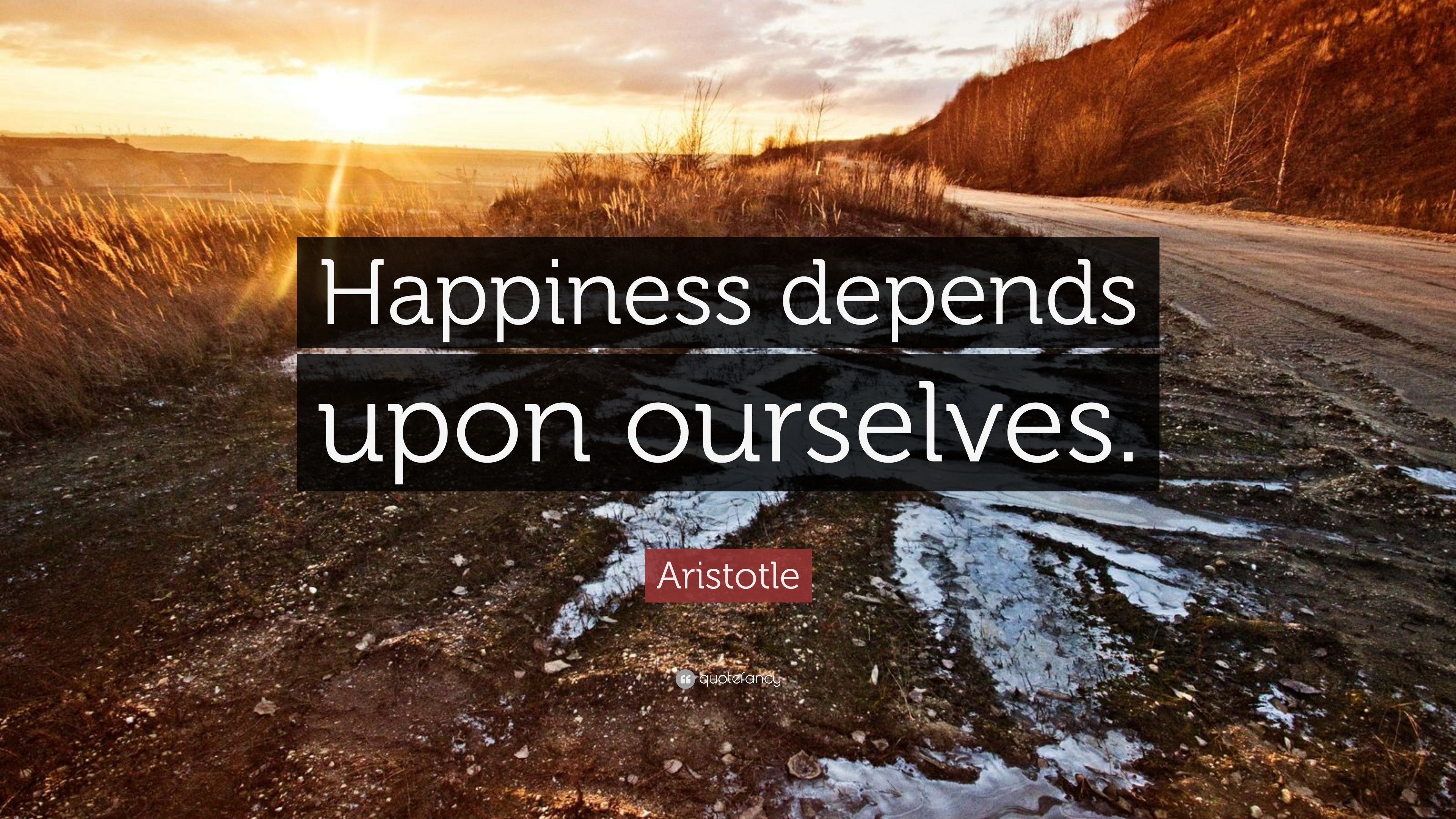Hello everyone and welcome to week two of this new blog series. Last time, we talked about switching from looking at the so-called small things or small ways to be happy each day, to looking at bigger picture ideas of how to maintain long term happiness.
As it turns out, a lot of the things we talked about last semester, like practicing gratitude, staying physically fit, and maintaining relationships, are all key parts of long-term happiness according to Psychology Today. What I want to do in this post is actually take a step. In order to continue discussing happiness strategies, I think it would be helpful to back track and actually look at what happiness means. What it is, what it isn’t, and why it’s important to have realistic expectations.

Image from 81 Inspiring Quotes On Life And The Pursuit Of Happiness (geckoandfly.com)
If you read an encyclopedia, you will see it defines happiness in two ways. Britannica first says that happiness is, “state of emotional well-being that a person experiences either in a narrow sense, when good things happen in a specific moment, or more broadly, as a positive evaluation of one’s life and accomplishments overall—that is, subjective well-being.”
This definition is hinting at the difference between short term and long-term happiness. It’s saying that short term happiness may result from a temporary moment, where long term happiness is the result of viewing your life in a positive light. If you feel like the only person questioning their happiness, or seeking to understand it better, let me promise you you’re not alone. The pursuit to understand human happiness is not a new one. Over 2,000 years ago in ancient Greece, Aristotle was hard at work pondering this very topic.

Image from Aristotle Quote: “Happiness depends upon ourselves.” (quotefancy.com)
Typically, we say we’re happy about things like eating our favorite food, earning a good exam grade, or listening to our favorite song. The way Aristotle explains happiness is quite different. In his studies, he created the word eudaimonia, which we often directly translate to “happiness”. However, this word offers an understanding of happiness very different from our usual one. The word originates from two Greek words. “Eu,” which means good, and “Damion,” which most closely means soul or self. Essentially, Aristotle believed that humans would feel happy when they are as “good” as they can be. To be good according to his ideas one must be hard working, virtuous, and excel at whatever tasks they come across. In other words, if one achieves their full potential, they will feel eudaimonia. Aristotle’s work provides an excellent roadmap to obtaining eudaimonia. Using his ideas and adapting it to your individual needs may be a good place to start in trying to define what your own happiness looks like.
We’ll be using this understanding of happiness as a guide as we continue unpacking what happiness is, and how we can try to achieve it long-term.
Until next time,
Avi
The Science of Happiness | Psychology Today
Happiness | Definition, Nature, Psychology, & Facts | Britannica
Hi Avi! I really enjoyed reading this passion blog post, as it expanded my perspective of what happiness truly is. I definitely agree with Aristotle’s approach that being truly happy is being as “good” as you can be. In my personal experience, I always feel the happiest when I am content with how I treat others, when I achieve my goals, and when I know I am doing everything in my power to succeed. I cannot wait to read more of your posts because they are very insightful and interesting!